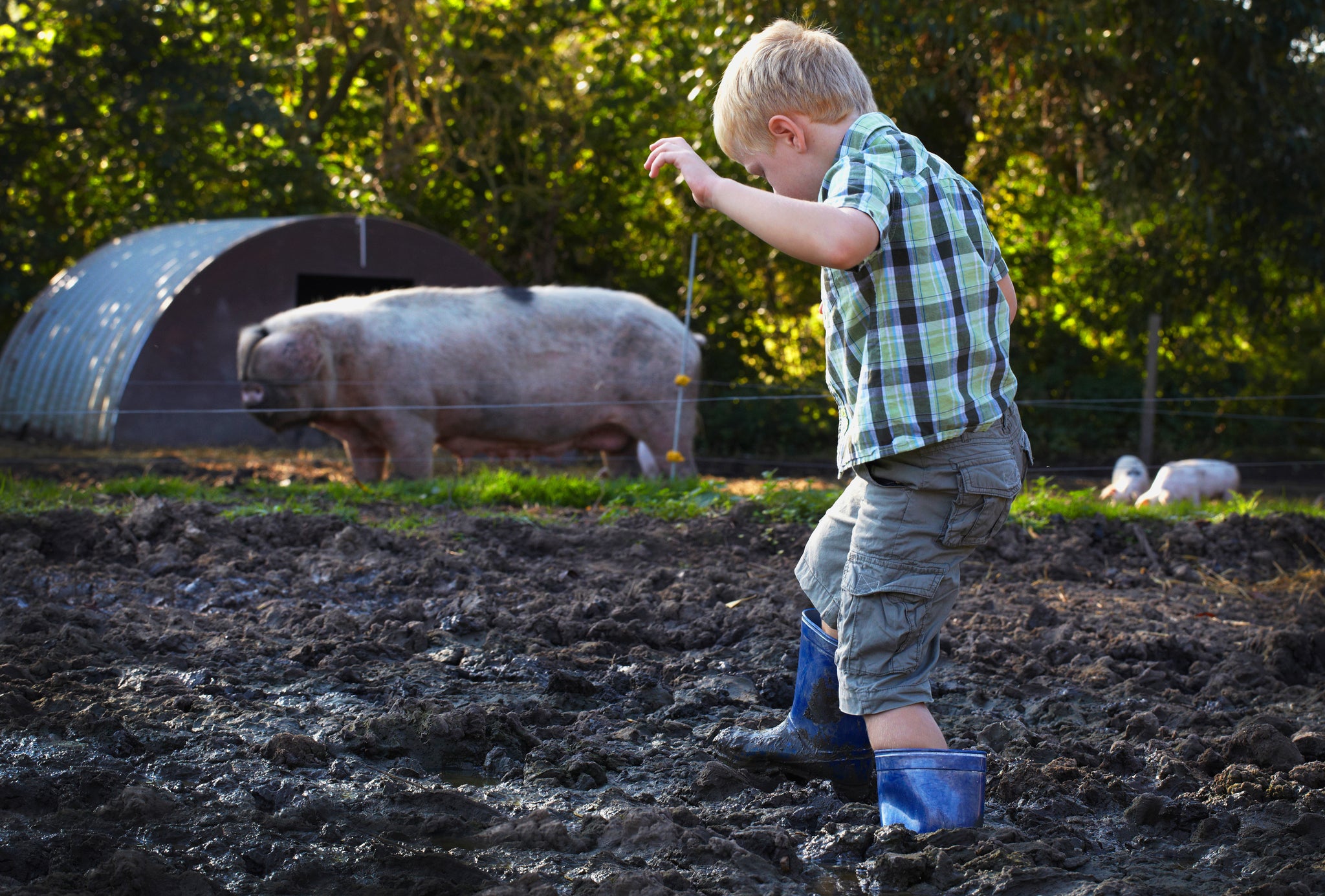The Independent's journalism is supported by our readers. When you purchase through links on our site, we may earn commission.
Growing up on a farm halves risk of developing inflammatory bowel disease, study says
Danish researchers questioned over 10,000 individuals to find a correlation between urban settings and a greater risk of developing Crohn's and colitis

Are you a city dweller in a perennial state of exasperation at the levels of smog, horn-tooting and traffic, who also frequently pledges to trade it all in for a country pile and a life next to the Aga?
Well, the case for packing it all in and heading to the countryside has been given a little lift, after researchers found a link between a bucolic lifestyle and greater protection against inflammatory bowel disease (IBD).
Those who grow up on a farm with livestock are half as likely to develop Crohn’s disease and ulcerative colitis, scientists from Aarhus University in Denmark say.
“It is extremely exciting that we can now see that not only allergic diseases, but also more classic inflammatory diseases appear to depend on the environment we are exposed to early in our lives,” said Vivi Schlünssen, Associate Professor in Public Health at the university.
The team thinks that an enlarging urban landscape could have something to do with the increase in people suffering with certain illnesses.
Take IBD for example, where certain features of urban settings, including more smoking, air pollution, antibiotic use and less exposure to helminths increase the risk of developing it, the scientists say.
Whereas in a rural setting, increased exposure to non- pathogen immunoregulatory microorganisms, having a vegetable garden in childhood, as well as drinking a higher amount of unpasteurised milk as a child, all helps to keep it at bay.
The team found that those born after 1952, who spent the first five years of their lives on a farm, were much less likely to develop one of the diseases.
They spoke to 10,864 people from Denmark, Norway, Sweden, Iceland and Estonia, who were born between 1945 and 1971.
“This leads us to believe that there is a correlation between the rise in inflammatory bowel diseases and increasing urbanisation, given that more and more children are growing up in urban settings,” added Signe Timm, a PhD student at Aarhus University.
“We know that development of the immune system is finalised in the first years of our lives, and we suspect that environmental influences may have a crucial effect on this development. The place where you grow up may therefore influence your risk of developing an inflammatory bowel disease later in life.”
The study, which has been published in the European Journal of Epidemiology, says that contact with farm animals during the first year of life has been demonstrated to reduce the risk of Crohn’s by half.
This contact is also thought to help asthma and other allergies due to exposure to a diverse microbial environment, the study says.
However, the team also suggests that it could be an ‘urban diet’ which has led to a rising incident of Crohn’s disease in urban settings, with the consumption of large quantities of inert inorganic non-nutrient microparticles (such as food additives).
“We know that the difference in the microbial environment between city and country has increased over the past century, and that we are exposed to far fewer different bacteria in urban environments today than we were previously. This may in part explain our findings,” said Signe Timm.
Ms Timm will now be contacting the 20,000 children of the initial participants to find out whether the next generation displays the same pattern and also to see whether immunisation and protection against these diseases can be handed down genetically from parents who grew up on a livestock farm.
Subscribe to Independent Premium to bookmark this article
Want to bookmark your favourite articles and stories to read or reference later? Start your Independent Premium subscription today.




Join our commenting forum
Join thought-provoking conversations, follow other Independent readers and see their replies
Comments